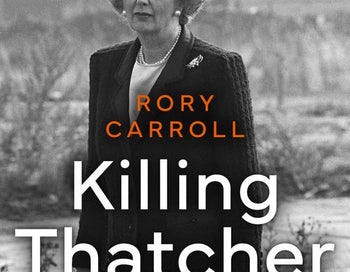I had never given much thought to the Brighton bombing before, but after reading Rory Carroll's well-researched and fascinating book, I realized that the event was a turning point in British history. “Killing Thatcher" is a detailed account of one of the most significant events in recent British history, the IRA’s infamous attack on the Grand Hotel in Brighton in 1984.
Carroll explores several issues related to the Brighton bombing. He looks at the history of the Troubles in Northern Ireland, as well as the political context of the time, to understand the motivations behind the attack. He also examines the background of Patrick Magee, the man responsible for the attack, the manhunt and the investigation that followed. He reflects on the impact of the bombing on British politics, including its effect on Margaret Thatcher‘s leadership and the Conservative Party.
Carroll avoids taking a moral or political stance on the events in his writing, which is systematic, thorough, and factual. This journalistic approach enables readers, particularly those unfamiliar with Northern Ireland's history and the political environment that gave rise to the IRA's violent campaign, to obtain a deeper insight into the events and their significance in British history. But he also tells a compelling story, combining events with the personal stories of the people involved or affected by the bombing and how they grow and change as the story unfolds.
The Brighton bombing had an impact on Thatcher's political views and career. It “gave her years to turn even more hostile towards European integration, seeding in the Conservative Party a radical idea that would take time to bloom: quit the European Union.” Of course, Brexit is a complex issue and cannot be attributed solely to Thatcher’s legacy, but one thing is certain. Her anti-EU rhetoric paved the way for Brexit and its unforeseen consequences for Northern Ireland, including its impacts on the historic Good Friday Agreement.
In the last piece she wrote down before she was gunned down, the Northern Ireland journalist Lyra McKee described how the peace process had enforced a collective amnesia in relation to earlier violence which was now haunting the present “like a ghost that refuses to depart for the other world. ”




